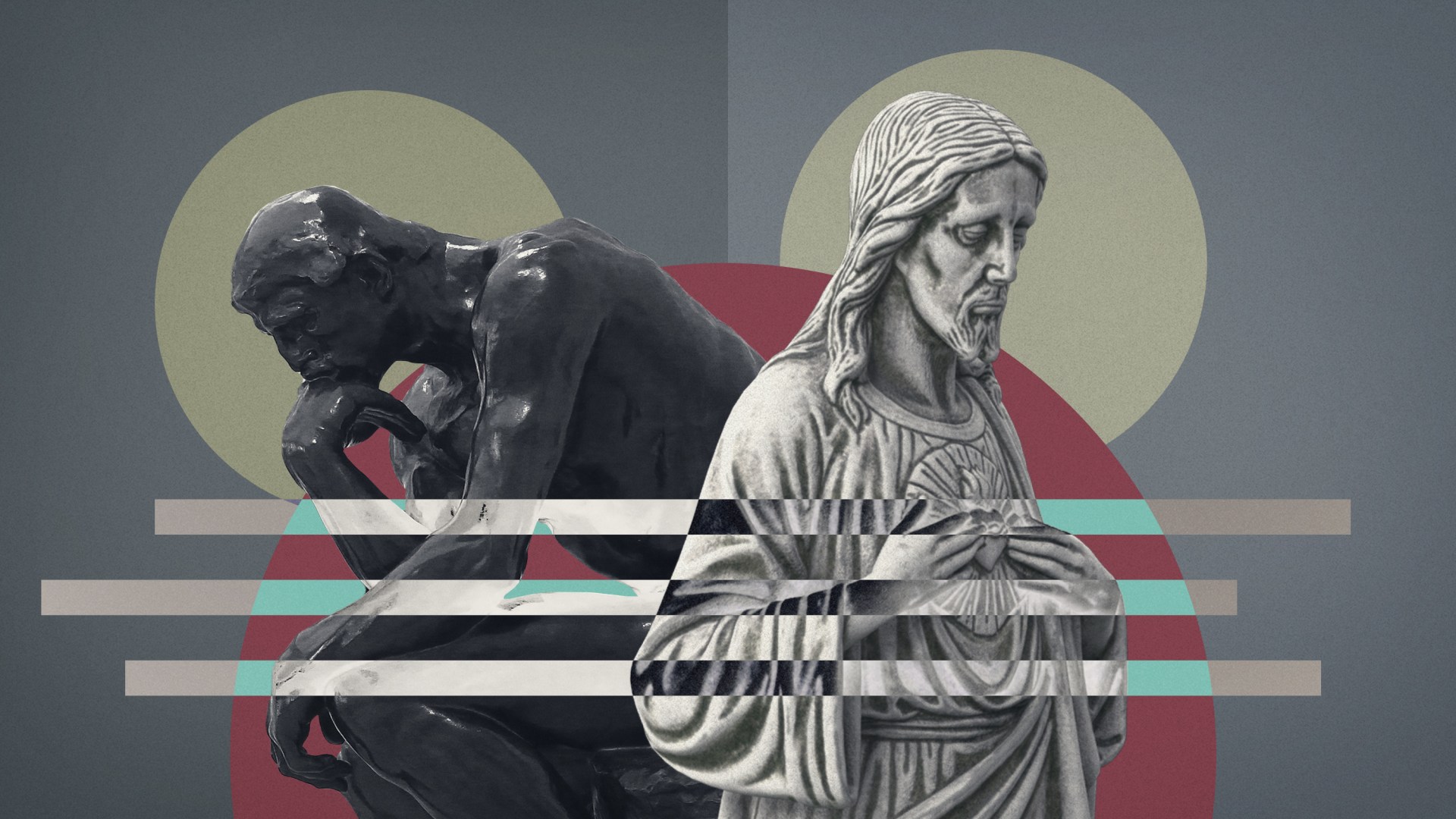Let me begin with a brief lament. As a Christian philosopher who teaches future ministry leaders and speaks to lay leaders and pastors, I frequently defend the need for philosophy. Allowing for some slight exaggeration, a typical student comment goes like this: “Why do I need to learn logic? Will I ever perform a logical proof in a Bible study?” Whenever I speak, teach, or preach at a church, I find a similar suspicion. Philosophers are viewed as a kind of novelty act: “Look what we found! A philosopher! Let him babble a bit to see if any koans drop out of his mouth.” All too often, the church assumes that Christianity and philosophy mix as well as oil and water.
Jesus the Great Philosopher: Rediscovering the Wisdom Needed for the Good Life
Brazos Press
240 pages
In every generation, certain books profoundly influence individuals or entire cultures, serving as catalysts for new ideas, enlarged possibilities, and fresh perspectives on ancient truths. The Enlightenment philosopher Immanuel Kant, for example, claimed that reading David Hume awakened him from a dogmatic slumber. I hope that Jonathan T. Pennington’s Jesus the Great Philosopher plays a similar role in the contemporary church, reminding us to value the brilliance of Jesus the Philosopher King. Pennington, who teaches New Testament at The Southern Baptist Theological Seminary, makes three arguments: that the Bible addresses the big philosophical questions, that Christianity is a philosophy, and that Jesus is a philosopher. Each of these claims seeks to recover a key truth lost by the contemporary church.
Modern secular philosophy is anemic and disconnected from everyday life; it was not always so. The ancient Greeks and Romans had a rich conception of philosophy. For the ancients, philosophy was a way of life: the love and pursuit of the good, the true, and the beautiful for the flourishing of individuals and the broader public. Philosophers sculpted society. They mapped and explored what Pennington calls the “land of the Good.” This map of reality directs us to four main compass points for exploring life’s big questions: metaphysics (the study of the nature and structure of reality), epistemology (the study of knowledge, truth, and belief), ethics (the study of right and wrong, goodness and evil), and politics (the study of the nature and structure of human society).
Now for Pennington’s startling claim: We find the same four compass points in the Bible. God’s Word makes claims about the nature and structure of reality, including the fundamental distinction between Creator and creature (metaphysics). It offers a nuanced view of knowledge as both factual and experiential (epistemology). And it has much to say about how we ought to live both individually (ethics) and as a society (politics). Thus, if we pay attention to the questions the Bible seeks to answer, we’ll discover how the world works and how we ought to live in it. We’ll develop into good philosophers, learning to ask the big questions and finding answers that help us align our lives with the true story of the world.
The Bible answers the big philosophical questions, according to Pennington, because Christianity is a philosophy. It is not merely a philosophy, of course, but it is also not less than a philosophy. Christianity offers us a “whole-life philosophy” that unites head and heart—and humans to each other and God—for the sake of meaningful happiness. After establishing this, Pennington’s book then takes an unexpected turn for those familiar with contemporary philosophy, or even with contemporary Christian philosophy, as it tackles topics that are regularly ignored or glossed over. More specifically, Pennington spends two chapters apiece on emotions and relationships. Plato and Aristotle discussed both topics extensively—as did Jesus and the biblical writers. Pennington argues that matters of emotion and social situation figure prominently in Jesus’ conception of the good life, which means they should figure prominently in ours as well.
The book’s title makes an iconoclastic claim: Not only is Jesus a philosopher; he’s a great philosopher. Christians today are prepared to accept Jesus as Lord and Savior, but not necessarily as a philosopher. And yet, as Dallas Willard writes in The Divine Conspiracy, Jesus possesses intellectual virtue to speak on all matters of reality. This makes Jesus a philosopher. While this might sound odd to modern ears, early followers thought of him this way. For support, Pennington points to a third-century painting found in a house church in Dura-Europos (modern-day Syria) depicting Jesus with a philosopher’s haircut, robe, and posture. A guru worth following, Jesus speaks authoritatively about what is good, true, and beautiful.
Pennington links some of the problems endemic to modern Christianity—fragmentation, biblical illiteracy, anti-intellectualism, a limited witness, and more—to the church’s failure to appreciate the philosophical nature of Christianity and of Christ himself. His book sets forth a challenge for modern Christians: to return to a more ancient—and biblical—conception of Jesus as the true Philosopher King.
Paul M. Gould is an associate professor of philosophy of religion at Palm Beach Atlantic University. He is the author of Cultural Apologetics: Renewing the Christian Voice, Conscience, and Imagination in a Disenchanted World (Zondervan Academic).











